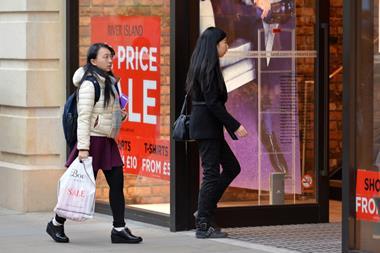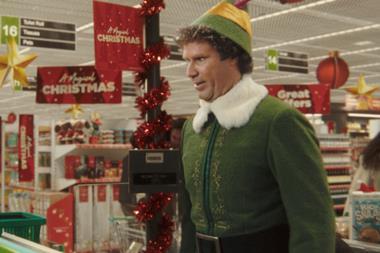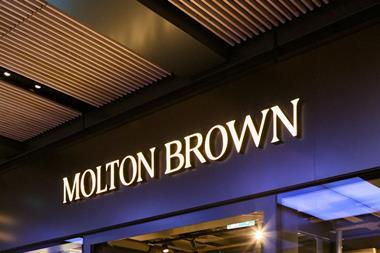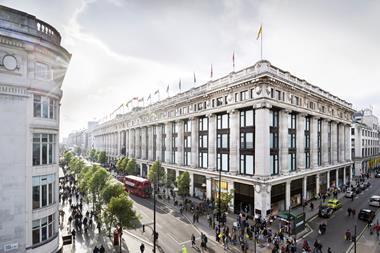Retailers remain hopeful that a late shopping surge will help save Christmas trading, despite the cost-of-living crisis and the added complications of rolling strike action.

With Christmas Day falling on a Sunday, sources from several retailers predict that Saturday – Christmas Eve – will be one of the busiest days of the year as customers flock to stores for last-minute gifts and to top up food shops.
Fashion giant Primark said that, while recent train strikes had impacted some stores, this had been balanced out by customers shopping closer to home.
“While we’re generally seeing good trade across all stores, the public transport strikes have had some impact on footfall in transport hubs, but this is balanced by our local stores faring even better than usual as shoppers stick closer to home to avoid the disruption,” said UK retail director Kari Rodgers.
She added that the recent cold snap had seen a huge uptick in sales of “warm clothing, including our fluffy pyjamas and thermals”. Primark has seen “unprecedented demand” for “snuddies, velvet plush leggings and gloves”.
A source at another multichannel fashion retailer said that, while footfall had been largely unaffected by rail strikes, the concurrent action by Royal Mail staff had impacted online sales.
“Royal Mail strikes have doubtlessly impacted online shopping behaviour and, certainly as we get closer to Christmas, customers are choosing to visit our stores to get last-minute items rather than choosing the option of home delivery,” they said.
With the cost-of-living crisis bringing price and quality to the forefront for many customers, the source said knitwear sales have grown “even faster than high-priced winter outerwear”.
“Potentially consumers are investing in warm clothing but being more considerate in what they are choosing to purchase and more mindful of price points,” they added.
While Royal Mail strikes have played havoc with some deliveries, John Lewis has bucked the trend of many retailers and extended its delivery window for Christmas in a bid to lure shoppers unable to get to stores.
Springboard has predicted that footfall will jump 10.5% higher on Saturday, December 24 compared to the previous week, but that footfall on Friday December 23 will be hit by another train strike.
‘There’s all to play for’
Grocers are building up for the final push, with December 22 and 23 historically being the days when customers finish their Christmas food shopping.
Springboard said that footfall to retail parks will be “much higher” week-on-week on those two days, as people who have returned home for the holidays stock up on food for the day itself. Footfall to high streets and shopping centres will likely peak on Christmas eve.
However, the cost-of-living crisis has had an impact, with supermarket bosses like Tesco’s Ken Murphy pointing out that customers have been looking to spread the cost of Christmas food shopping throughout the month.
He said Tesco customers have been switching to cheaper frozen products – sales of frozen turkeys have doubled this year compared with 2019 – to keep costs down and have been switching away from pricier red meats to cheaper white protein alternatives.
Despite this, customers are still determined to celebrate. One industry source said Christmas would be “not as bad as initially feared” and added: “There’s all to play for and the hope is sales will hold up. I think it will be an OK, story rather than good, because volumes are still down. It’s a case of weathering the storm.”
One big retailer, whose operations span food to general merchandise, expected consumers to be determined to enjoy Christmas after years of disruption and said festive meals were regarded as “protected spend”.
The retailer said that, although the rail strikes have been disruptive, spending was expected to “even out” over the entirety of the Christmas period.
Retailers may benefit from customers’ spending plans as they weigh up what to buy amid the cost-of-living crisis. Marks & Spencer customer research found that eating out and travel were the areas shoppers were most likely to cut.


























No comments yet